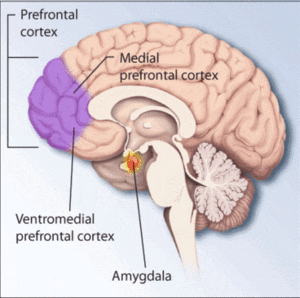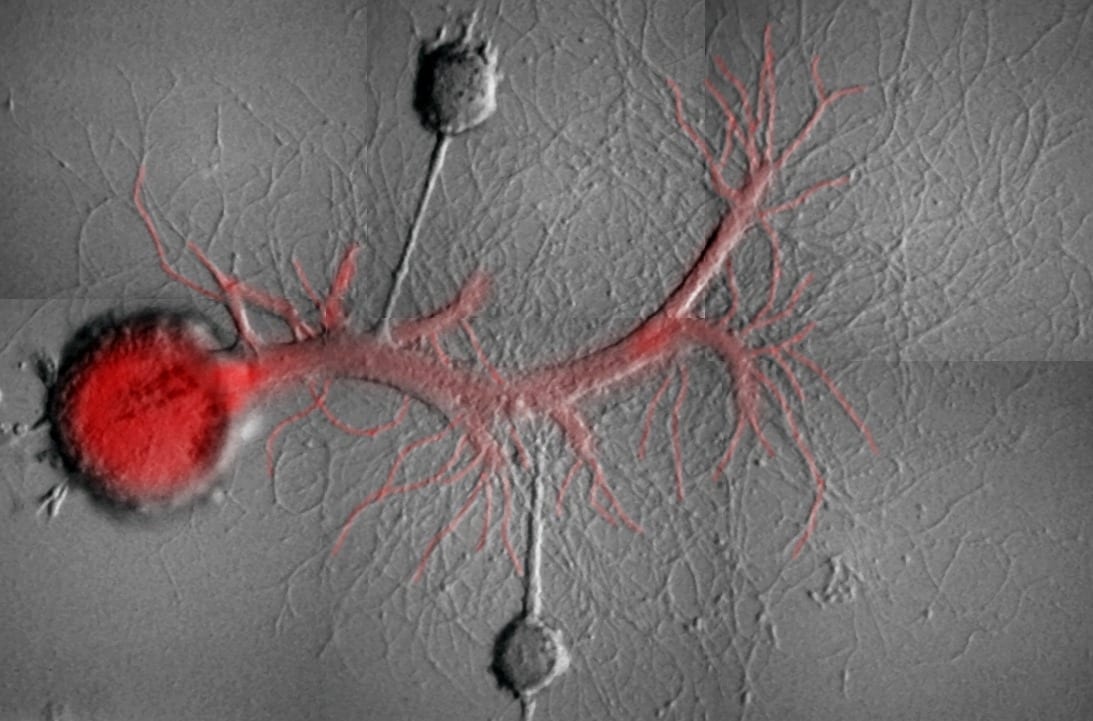
Research into the growth of neurons in the brains of mice at the University of South Florida has led to an unexpected finding: Psilocybin, the psychedelic ingredient of certain mushrooms, might one day help treat post-traumatic stress disorder.
Juan Sanchez-Ramos, a professor of neurology at USF, and a former researcher in his laboratory published their findings this summer in the journal Experimental Brain Research. They were attempting to determine the effects of psilocybin on the creation of new neurons in the brain, which helps learning and the development of short-term memory. It’s a process known as neurogenesis.
Sanchez-Ramos said that in some situations, as when a cancer patient is undergoing chemotherapy, the ability to form new neurons is inhibited.
“One of the important things that we know is that if you destroy the capacity to bring new neurons into being, you will have problems with some aspects of memory,” Sanchez-Ramos said. “One of the side effects (of chemotherapy), besides hair loss … is that you inhibit the birth of new neurons. This can mean memory problems and learning problems.”
He and former Ph.D. student Briony Catlow set out to see if small doses of psilocybin in lab mice affected memory. Catlow is now at the Lieber institute for Brain Development at Johns Hopkins Bioscience Park in Baltimore.
They used a classical conditioning experiment: Mice were introduced into a cubicle. They would hear a tone, then receive a slight shock resembling a static electricity snap, which would lead them to freeze in place.
The researchers then looked for fear conditioning in the mice. How long did it take for them to anticipate the shock after hearing the tone?
The psilocybin did not appear to make a difference in how quickly the mice picked up the fear response. But there was, as Sanchez-Ramos described it, a “serendipitous observation.”
Another measure of classical conditioning is “extinction” — when the tone is sounded but not followed by a shock. How long does it take for the mouse to un-learn the behavior?
The mice that were given the psilocybin doses lost the fear response much faster.
Sanchez-Ramos speculates that perhaps very low doses of psilocybin might help soldiers, for example, recover from PTSD.
Consider how a loud unexpected noise such as a car backfiring might trigger an anxiety episode; might the chemical help that person un-learn the behavior?
Another application might be for drug addicts or alcoholics introduced to an environment — exposed to drug paraphernalia, or entering a bar — that could trigger a relapse. “There’s a lot of classical conditioning with withdrawal symptoms,” Sanchez-Ramos said.
The Latest Google Headlines on:
Posttraumatic stress disorder
[google_news title=”” keyword=”posttraumatic stress disorder” num_posts=”10″ blurb_length=”0″ show_thumb=”left”]
The Latest Bing News on:
Posttraumatic stress disorder
- ‘They just wanted their moms:’ Mother survived deadly Hays bus crash, recounts tragic dayon April 27, 2024 at 1:06 pm
The special education aide at Tom Green Elementary in Buda had helped gather the group of more than 40 children into a single-file line, including her 5-year-old daughter. She guided them to their ...
- Minneapolis Approves PTSD Settlement for George Floyd Witness Who Faced Police Intimidationon April 27, 2024 at 10:29 am
In an act that echoes the ongoing reckoning with police brutality and systemic racism in the United States, the Minneapolis City Council has approved a significant settlement for Donald Williams, a ...
- Youth center victim seeking $1.5M for treatmenton April 27, 2024 at 8:34 am
A medical expert called to testify for David Meehan in his trailblazing lawsuit against the state testified Thursday he will need life-long Post Traumatic Stress Disorder treatment costing ...
- ‘Troubling reports’ of abuse at Michigan ICE facility prompt call for investigationon April 27, 2024 at 7:30 am
Under the ICE’s last inspection, the Calhoun County Jail received a rating of “meets expectations” in March 2022. Over a two-day period, inspectors interviewed eight detainees who said they felt safe ...
- California should legalize psychedelics but learn from mistakes in marijuana regulationon April 27, 2024 at 1:00 am
There is a growing body of medical research showing psychedelic-assisted therapies can be tremendously effective at helping treat anxiety, severe depression, post-traumatic stress disorder, substance ...
- Minneapolis approves $150K settlement for witness to George Floyd's murderon April 26, 2024 at 9:43 am
The Minneapolis City Council has agreed to pay a $150,000 settlement to an eyewitness who tried to intervene to prevent George Floyd’s murder and who says he suffers from post-traumatic stress disorde ...
- Hobart workplace investigator says her job caused vicarious trauma and post traumatic stress disorderon April 25, 2024 at 7:49 pm
A workplace investigator has failed to prove she was unfairly dismissed after being subjected to trauma as part of her job – including being harassed by an alleged sex offender, her home being ...
- Breakthrough study on post-traumatic stress disorderon April 25, 2024 at 12:35 pm
A UC San Diego-led collaboration of researchers, institutions and databases makes advances on the understanding of the genetic component of PTSD.
- Dozens of genes are linked to post-traumatic stress disorderon April 21, 2024 at 5:00 pm
Findings underscore that genetic factors contribute to development of the condition after a traumatic incident.
- April is Stress Awareness Monthon April 15, 2024 at 8:36 pm
It is shown that Veterans of the same service era who are deployed are three times more likely to be diagnosed with PTSD versus ones who were not deployed. Data from older studies suggests PTSD is ...
The Latest Google Headlines on:
PTSD treatment
[google_news title=”” keyword=”PTSD treatment” num_posts=”10″ blurb_length=”0″ show_thumb=”left”]
The Latest Bing News on:
PTSD treatment
- Youth center victim seeking $1.5M for treatmenton April 27, 2024 at 8:34 am
A medical expert called to testify for David Meehan in his trailblazing lawsuit against the state testified Thursday he will need life-long Post Traumatic Stress Disorder treatment costing ...
- PTSD professor details own experiences in the wake of Bondi Junction fatal stabbingson April 26, 2024 at 6:58 pm
It was the deadly mass shooting that left 14 women dead, 14 others wounded and changed Alain Brunet’s life forever.
- PTSD tied to 95 'risk hotspots' in the genomeon April 26, 2024 at 1:00 pm
In a group effort, scientists from all over the world came together to create a detailed map of the genetic causes behind PTSD.
- Wayne Rooney reveals bizarre bedtime routine as Man Utd fans claim club legend is still suffering ‘Fergie PTSD’on April 26, 2024 at 12:00 pm
WAYNE ROONEY has blown away Alex Ferguson as the main man with a hairdryer – after revealing an astonishing bed-time habit. The former England skipper admits he is an unusual ...
- JPMorgan CEO Jamie Dimon reveals he has ‘PTSD’ from ‘near death’ heart surgery: ‘I knew it was 50/50’on April 26, 2024 at 8:43 am
JPMorgan Chase CEO Jamie Dimon admitted that he has “PTSD” from a “near death” heart surgery that took place in 2020. “When I was being wheeled in the operating room for the dissection, I knew it was ...
- Medical Expert Says Meehan Needs $1.5M for Lifelong PTSD Treatmenton April 25, 2024 at 3:23 pm
A medical expert called to testify for David Meehan in his trailblazing lawsuit against the state testified Thursday he will need life-long Post Traumatic Stress Disorder treatment costing up to $1.5 ...
- PTSD crisis looms as troop shortages take toll on Ukrainian soldiers’ mental healthon April 25, 2024 at 1:43 pm
The situation wasn’t particularly dangerous, but she couldn’t bring herself to do her job as her fellow soldiers were getting wounded. "I found myself trapped in the dugout corner, trembling like a ...
- Doctor testifies at YDC trial about plaintiff's PTSDon April 25, 2024 at 1:15 pm
A forensic psychiatrist will resume her testimony Thursday in the civil trial involving the state's Youth Development Center and claims of physical and sexual abuse there.
- Breakthrough study on post-traumatic stress disorderon April 25, 2024 at 12:35 pm
A UC San Diego-led collaboration of researchers, institutions and databases makes advances on the understanding of the genetic component of PTSD.
- GrayMatters Health Wins Edison Gold Award for its Innovative PTSD Treatmenton April 22, 2024 at 5:00 am
GrayMatters Health (GMH), developer of digital self-neuromodulation treatments for mental health care, today announced its flagship FDA-cleared device Prism for PTSD has been named a Gold winner of ...











